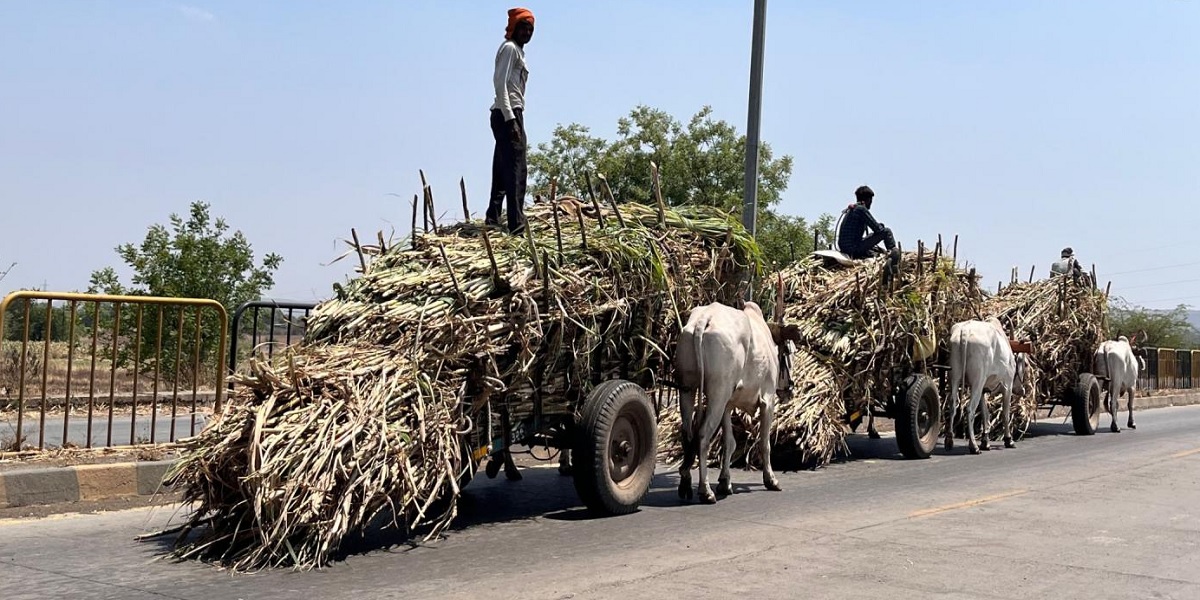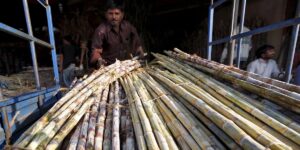Unlike conventional plastic bottles, which take hundreds, if not thousands of years to break down, Bakwa’s bottles decompose in 150–180 days under industrial composting conditions, leaving no microplastics behind.
Published Oct 23, 2025 | 9:00 AM ⚊ Updated Oct 23, 2025 | 9:00 AM

Bakwa is a sustainable packaging brand producing 100% biodegradable bottles made entirely from plant-based materials like sugarcane and corn starch.
Synopsis: Aswin J Tom, a young entrepreneur from Kerala, has launched Bakwa, a start-up making fully biodegradable water bottles from sugarcane and corn starch sourced from Gujarat’s mills. His venture combines public awareness campaigns, partnerships with delivery platforms, and local production in Kerala to promote sustainable alternatives to plastic. The initiative aligns with Kerala’s efforts to curb the use of single use plastic.
Plastic is everywhere in modern life. Despite its harmful impact on ecosystems, human health and livelihoods, efforts to replace it with sustainable alternatives have often fallen short. It is not for a lack of trying.
Aswin J Tom, a young entrepreneur from Kerala’s Idukki, is the latest in a series of pioneers aiming to remove plastic from everyday use.

Bakwa is a sustainable packaging brand producing 100% biodegradable bottles made entirely from plant-based materials like sugarcane and corn starch.
His venture, ‘Bakwa’, the first of its kind in the state, is gaining momentum. Massive awareness programmes across Kerala are highlighting its eco-friendly mission: replacing plastic bottles with alternatives made from agricultural by-products.
“It is a sustainable packaging brand producing 100 percent biodegradable bottles made entirely from plant-based materials like sugarcane and corn starch. Unlike in the south, the north has many sugarcane mills, where we sourced our raw materials, and we ended up signing an agreement with a company in Gujarat,” Aswin explained to South First.
What began as a local idea in Kochi is shaping up to be a South Indian effort – one that could help build a future with more green and less toxic waste.
Unlike conventional plastic bottles, which take hundreds, if not thousands of years to break down, Bakwa’s bottles decompose in 150–180 days under industrial composting conditions, leaving no microplastics behind.
The startup sources its key raw material, Polylactic Acid (PLA), from a Gujarat-based company that holds the patent for a biodegradable compound derived from sugarcane and corn starch.
PLA, a bio-based polymer, naturally decomposes within 180 days under industrial composting conditions. However, converting PLA granules, a byproduct of sugar mills, into bottles requires heavy investment in machinery and infrastructure.
The bottles are BPA-free, leak-proof, and safe for both hot and cold beverages. They come in 250 ml, 500 ml, and 1 L sizes, with options for customised bulk orders. This caters to beverage companies, event organisers, and environmentally conscious consumers.
Aswin said the brand’s operations in Kochi, Kanjirappally and Thodupuzha not only encourage sustainable consumption but also support local manufacturing and green jobs in Kerala.
The initiative, recently praised by Industries Minister P Rajeev, is focusing on raising public awareness about eco-friendly alternatives across Kerala, particularly in Kochi, where plastic pollution has heavily affected beaches and urban areas.
But one of its biggest challenges is the cost of sustainability.
A Bakwa biodegradable water bottle costs around ₹30, compared with ₹10 for a regular plastic bottle. To address this, the team is educating consumers about the long-term environmental and health benefits of biodegradable options.
To bring their message to the public, Bakwa has partnered with the Free Water Project South, which distributes free drinking water in eco-friendly bottles during awareness drives across Kochi. The campaign plans to expand to other southern states, spreading the message of sustainability and the need for biodegradable packaging.
“At this stage, our operations are primarily B2B, focusing on collaboration with brands like Zomato, Swiggy and Lulu Malls, spaces where customers are open to paying slightly more for sustainable alternatives,” the team explains.
“Our mission is to help people understand why paying a little extra today is an investment in a cleaner, healthier tomorrow.”
Bakwa also highlights the health hazards posed by microplastics, conducting campaigns to raise awareness of their impact on human health and the environment.
As conversations around sustainable events and eco-conscious consumption grow, Bakwa’s efforts align with Kerala’s expanding green initiatives – reinforcing why the team calls it not just a brand, but a movement for change.
Meanwhile, the larger bottled water market is evolving, with Reliance Consumer Products entering the segment through its new budget brand Campa Sure, signalling growing competition and shifting consumer preferences in the ₹30,000-crore sector.
Kerala has enforced a partial ban on single-use plastic bottles, effective 2 October 2025, following a Kerala High Court directive. The order restricts the use of plastic water bottles under five litres and soft drink bottles under two litres in certain areas, including hilly tourist destinations, weddings, hotels, restaurants and official events.
Although the state announced a complete ban on single-use plastics in 2019, its implementation remained patchy. The latest order strengthens the effort by targeting additional locations and high-consumption plastic items.
The court has also urged the promotion of public water kiosks and reusable containers as sustainable alternatives.
However, in August 2025, the Supreme Court issued a stay on the High Court order.
According to Aswin, the stay was sought by major packaged drinking water manufacturers, who “continue to engage in several questionable practices that often go unnoticed.”
He added: “The quality of bottled water itself is a concern, but the bigger issue is their mindset – they know the environmental damage but justify it as part of business. They say the next generation will find alternatives anyway.”
Aswin also highlighted the economic temptation behind such practices: “Even a plastic cap can save ₹3 per bottle if we exploit loopholes – but we don’t. Our bottles are entirely made from biodegradable materials, and that’s a line we’ll never cross.”
(Edited by Dese Gowda)
